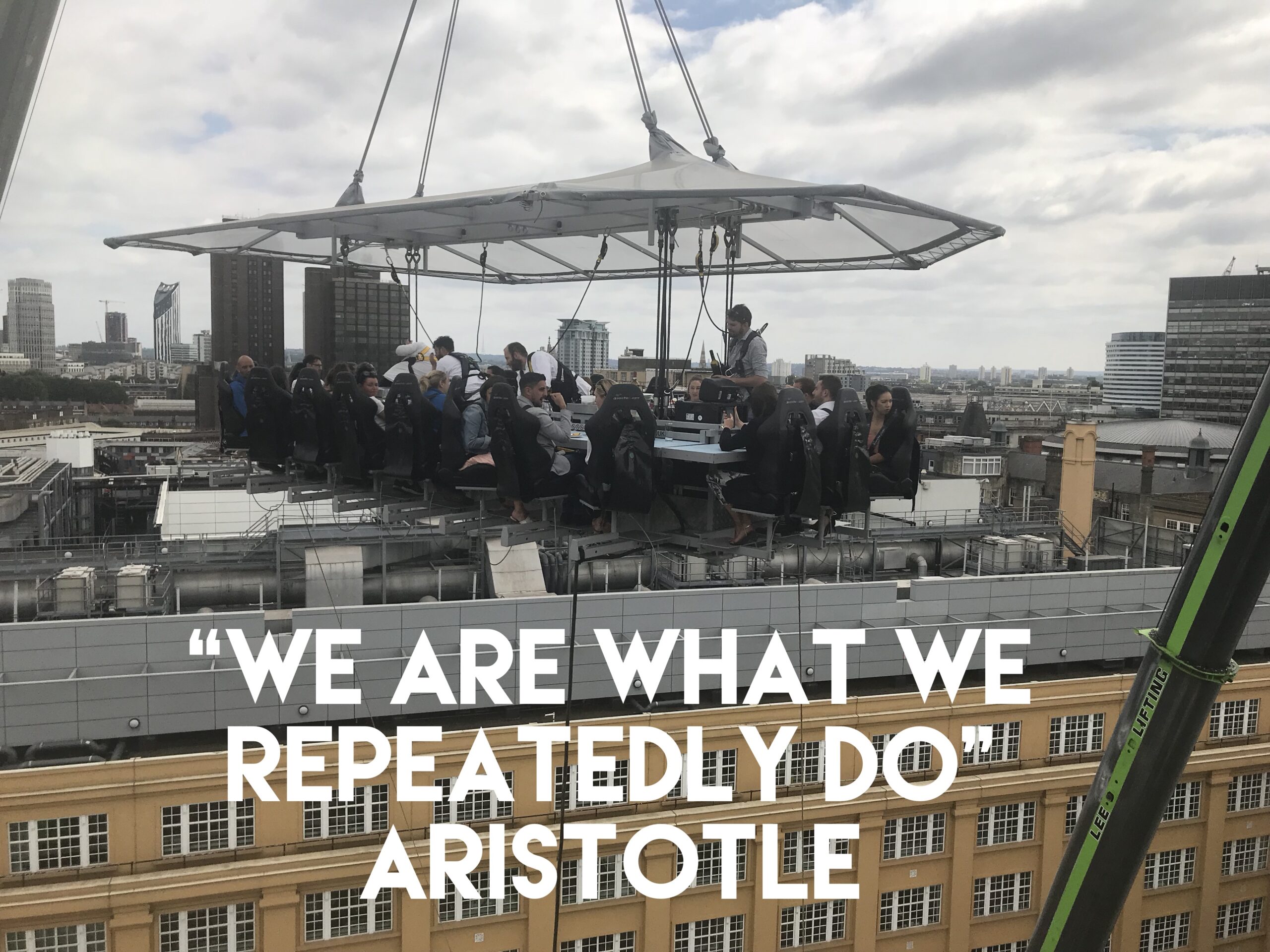There’s a story about a man riding a horse. He’s galloping along very quickly and appears that he’s going somewhere with real urgency, purpose and vigour. Yet when a man by the roadside shouts, “Where are you going?” The man on the horse replies, “I don’t know, ask the horse!”
And so goes the story for many of us. Our habits govern and control us, yet we never even notice that hundreds of poor scripts are merrily wreaking havoc in the background of our lives. As ridiculous as it sounds, I remember how amazed I was when someone showed me how all the browsers I’d ever opened on my iPhone remained continually open unless I closed them down each time I browsed. All those open browsers were causing my phone to slow down, and even stall. That’s exactly what happens to us.
We were born without habits, yet over our lifespan we pick up thousands of them from parents, friends, teachers, books, films and many other places. Psychological studies show that 95% of everything we think, feel and do is a result of a learned habit. And until recently I had never even stopped to think about this. Have you? Most of us live far too much of our lives on the back of a galloping horse named Autopilot.
And some of this is, of course, necessary. We drive our cars from A to B without thinking and arrive somewhere, wondering how on earth we got there. Ever felt like that? We eat without thinking, too. One moment we have a plateful, the next moment it’s gone and we can’t remember eating most of it — it just went. Millions of hours are spent on activities and habits that we’re doing unconsciously. Walking is a good example in my life right now. I had a major knee operation and after 6 weeks of not walking and 2 weeks on crutches, one leg had literally forgotten how to walk. This previously unconscious activity suddenly came crashing into my awareness. What had become an automated activity since I’d learnt to walk as a toddler, had now become undone. So I currently spend much of my day thinking about it, watching others and trying to re-learn how to do it.
And once I’ve cracked it, walking is of course, one activity that I’ll happily accept back into my life as an unconscious habit. If we had to consciously think about and do everything, then we’d run out of steam rather quickly. Yet there are hundreds, if not thousands of examples where unlearning bad habits could provide us with a far better quality of life.
Examples of these might be what we eat, how much we exercise, how well we parent, how much money we spend, how grateful we are, how we react to stressful situations and how we work effectively. Over time you’ll be amazed at how the smallest adjustments you make to poor habits that are not best serving you, will lead to the most astounding and magical outcomes. There are several ways to start and from experience, I highly recommend starting small. Keep things extremely manageable and simple in order not to thwart or sabotage yourself. I’ve just started a food diary. I’ve never done it before and I’m quite excited to see the results. I’ll probably be quite shocked too. Three weeks is recommended. You can try it with any of the examples listed above, or choose whichever habit you want to focus on and change. Then, stick to tracking it for the full three weeks.
Once you’ve completed it and learned from it, begin to track something else. It’s quite addictive. Or you could try shaping your day around a framework of good habits. It’s taken me some time to come up with these, and I’m nowhere near perfect, but this is what I aim for each day. You can adjust this to work around your lifestyle. Mine is born out of research on the habits of successful people — those I admire. Importantly, when I don’t do these things, I notice the difference. This makes me realise how beneficial good habits are to my life when I do stick to them. I aim for this 5 days a week with weekends off:
- 5.50am get up, don’t hit snooze
- Write in my journal (how I’m feeling, what I want to achieve, what I’m grateful for etc. There are masses of studies on how beneficial journal writing is for you)
- Meditation/breathing/grounding exercise
- Gym
- Cold shower — this requires practice and effort but it’s worth it. It kick starts the metabolism and you feel great afterwards!
- Green smoothie for breakfast
- I try and consider what state I want to be in at various times throughout the day. Again, this requires considerable practice, but what this means is that I try and choose my state rather than force it or let it choose me. Sometimes these are positive states, others may be less positive. The important thing here is that I allow myself to choose one for a period of time. Therefore I am trying to be more conscious of who I am and how I behave
- Work for much of the day
- 30 mins reading or watching inspiring content
- At the end of the day I do a short summary either in my journal or in my head of what I’m grateful for that day, meaningful events/conversations etc.
- Before I go to sleep I ask myself a question on something I want an answer to/am working on
- Try and get at least 7 hours sleep
One of the examples I like the most about changing habits is the one about the plane. If the plane is bound for London to New York and is just a fraction off course, the tiniest amount that you’d never imagine would have an impact, it will. By as much as 150 miles if it’s 1% off course for 5 hours flying time. That’s what our lives are like. Small, bad habits that creep in and go unnoticed over time will eventually lead to problems — sometimes catastrophic ones. Yet, flip that and imagine the reverse scenario for small, positive changes in habits. Just like the plane, you’ll arrive on course if correct as you go along. So go on, give yourself 3 weeks to track something in your life and I promise you’ll be astounded by the insights you’ll get back.

